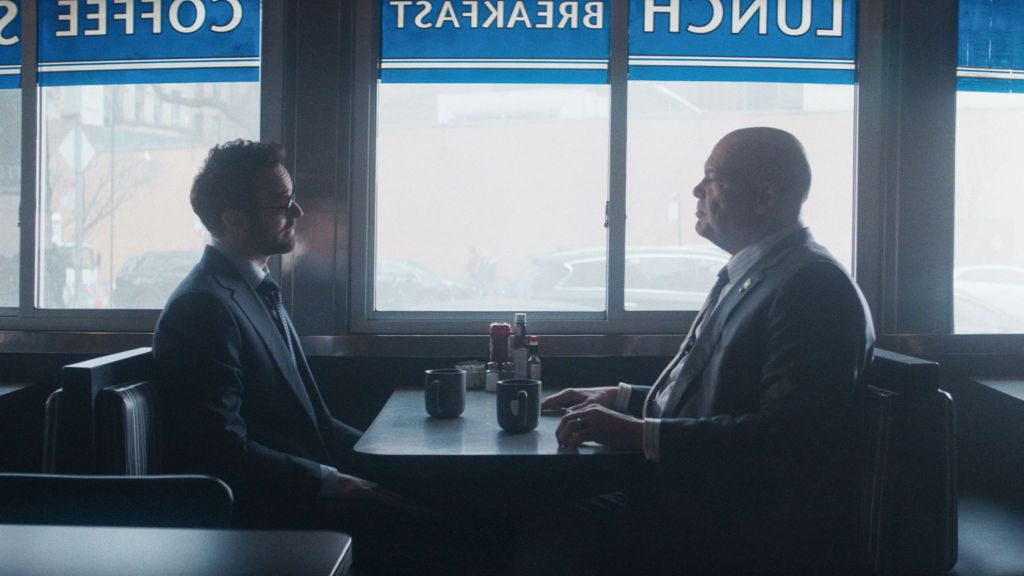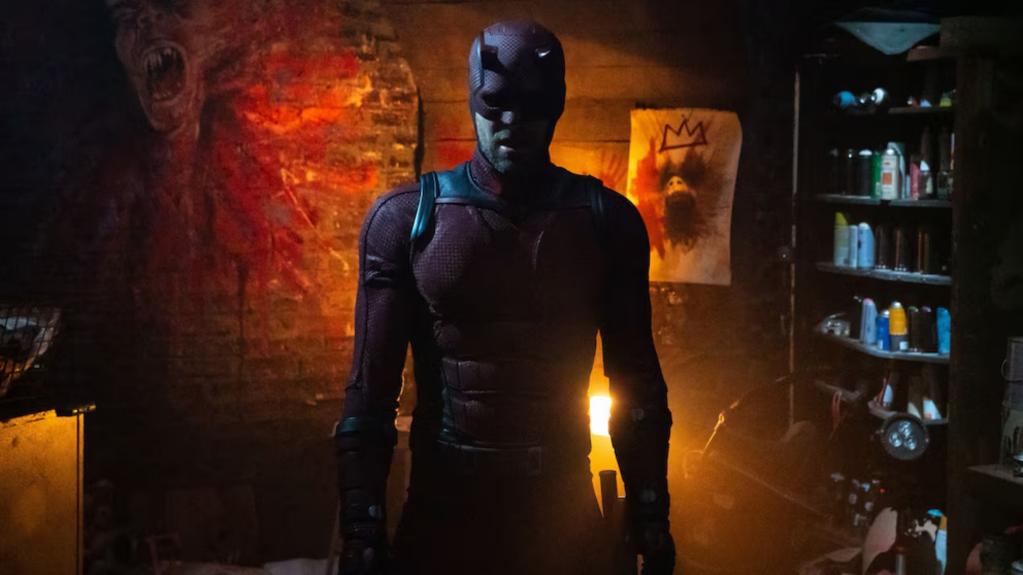Daredevil: Born Again is one of the MCU’s most psychologically complex examinations of heroism and villainy. The Disney+ series reunites viewers with Charlie Cox’s Matt Murdock and Vincent D’Onofrio’s Wilson Fisk, but places them in dramatically altered circumstances. After the devastating loss of his best friend Foggy Nelson (Elden Henson), Matt abandons his vigilante persona to focus exclusively on legal work, believing his crossing of moral lines during that tragedy disqualified him from the vigilante role. Meanwhile, Fisk emerges from a lengthy absence to pursue political power as New York’s mayor, presenting himself as a legitimate force for change.
Videos by ComicBook.com
Daredevil: Born Again is particularly compelling because it refuses to show these characters as simple opposites, instead highlighting their uncomfortable similarities. Both men grapple with dual identities; both seek order in a chaotic world; and both must confront the question of whether true transformation is ever possible. This thematic exploration reaches its apex in a pivotal action sequence during Daredevil: Born Again Episode 6 that encapsulates everything the series has been building toward through careful visual storytelling and parallel editing.
WARNING: Spoilers Below!
In Episode 6 of Daredevil: Born Again, Angela Del Toro (Camila Rodriguez), niece of the murdered vigilante White Tiger, vanishes while investigating a string of mysterious disappearances in abandoned subway tunnels. Matt, who previously refused to help Angela outside of legal channels, realizes the system he’s committed to cannot respond quickly enough to save her from danger. This crisis of conscience forces him to don the Daredevil costume for the first time since Foggy’s death, a pivotal moment in Matt’s journey. Elsewhere, Mayor Fisk continues his complex psychological battle with Adam (Lou Taylor Pucci), the man who had an affair with Vanessa (Ayelet Zurer) during Fisk’s absence. Rather than simply eliminating this rival, Fisk has kept Adam imprisoned in a basement cell, allowing him to technically honor his promise to Vanessa not to kill her lover while still exacting a prolonged revenge that satisfies his darker impulses.

[RELATED: Daredevil: Born Again Fixes Marvel Fan’s Problem With Netflix Punisher]
As Daredevil tracks Angela to the lair of serial killer Muse, who uses victims’ blood to create gruesome artwork, Fisk escalates his psychological torment of Adam by bringing a hatchet into the prisoner’s cell. The sequence that follows intercuts between these two confrontations with masterful precision. In the tunnels, Daredevil discovers Muse draining Angela’s blood, triggering an immediate response; simultaneously, Fisk places the hatchet within Adam’s reach, ostensibly giving his captive a chance to fight back in a twisted gesture of fairness. What follows is a brutally choreographed dual battle that sees both Matt and Fisk embracing the violence they’ve tried to suppress, with the series deliberately cutting between these parallel fights to emphasize their thematic connection.
Daredevil: Born Again Is About Matt Murdock & Wilson Fisk’s Relationship with Violence

What makes Episode 6’s set piece so emblematic is how it captures the similarities and crucial differences between Matt Murdock and Wilson Fisk. As Daredevil confronts Muse, Matt surrenders to his primal instincts, unleashing a fury that flows through him with disturbing ease. What truly haunts him isn’t the physical combat itself but the uncomfortable realization that he takes satisfaction in this dark expression of his abilities. The devil lurking in his heart threatens to consume his soul, and Matt recognizes this destructive energy must be directed toward protection rather than retribution. Yet this awareness doesn’t diminish the guilt he experiences at how readily he embraces his darker impulses. This internal struggle culminates when Matt, after subduing Muse and rescuing Angela, cries out toward the heavens — a raw expression of his torment over how effortlessly he returns to his violent ways.
Fisk’s encounter with Adam unfolds along an entirely different emotional path. Unlike Matt’s reluctant surrender to his aggressive tendencies, Fisk methodically creates a scenario that permits him to indulge his true character. By offering Adam the hatchet and an opportunity to defend himself, Fisk manufactures justification for what he genuinely desires: the chance to punish the man who dared to touch The Kingpin’s wife. This is a calculated act that honors both his promise to Vanessa (technically sparing Adam’s life) and satisfies his need for physical domination. Where Matt experiences shame in his capacity for brutality, Fisk embraces it as intrinsic to his identity. The scene concludes with Fisk dragging an unconscious Adam back to his cell and sitting on the sparse bed inside. Illuminated by light rays, his face reflects nothing but contentment and relief at finally expressing his wrath.

[RELATED: Jon Bernthal Refused to Return as the Punisher Before Daredevil: Born Again Creative Overhaul]
This parallel sequence perfectly distills the essential contrast at the heart of Daredevil: Born Again. Both Matt Murdock and Wilson Fisk possess extraordinary physical prowess that pushes them towards violence, yet their relationship to this aspect of themselves couldn’t be more different. Matt views his combative skills as a burden that must be constrained and channeled toward protecting others; Fisk interprets violence as an expression of power. With the editing of its closing action scene, Episode 6 of Daredevil: Born Again proves that what separates these two men isn’t their actions or abilities, but their response to the darkness dwelling within themselves.
New episodes of Daredevil: Born Again premiere on Disney+ every Tuesday.
How do you think Daredevil: Born Again will continue to develop the dual journey of Matt Murdock and Wilson Fisk? Join the discussion in the comments!








